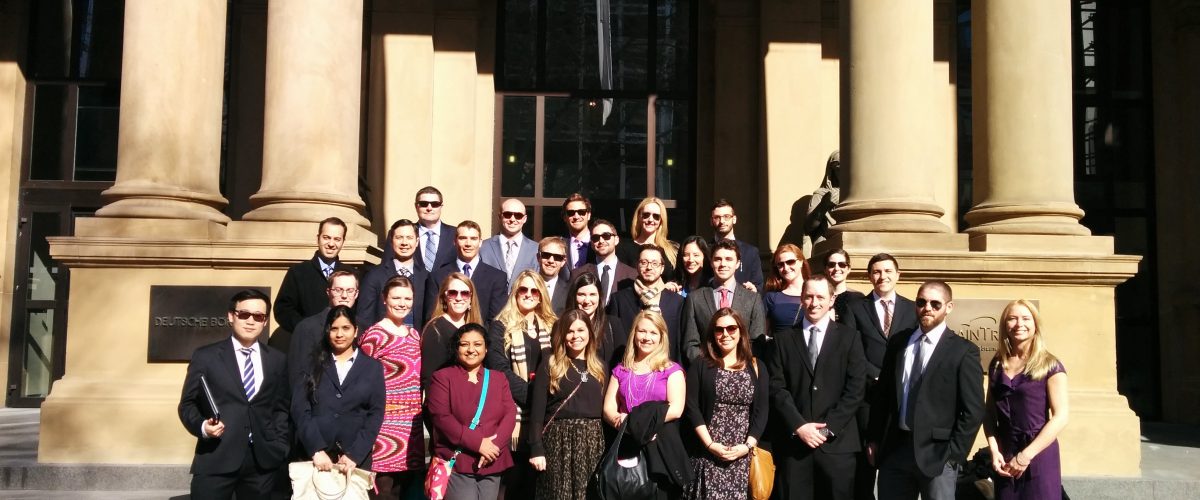
“Many small people, who in many small places do many small things, can alter the face of the world.” So reads an inscription on one of the remaining panels of the Berlin Wall, a barrier between East and West Berlin that stood for nearly three decades and became a symbol of a divided world. When the wall fell, so too did barriers to the flow of capital, goods, and people. Twenty-five years later, the University of Colorado’s 11-Month MBA program arrived in Germany to observe the economic landscape and explore business opportunities in this once divided region.
The tour through Germany and the Czech Republic began in Germany’s financial capital, Frankfurt. Students visited Deutsche Börse AG, the largest stock exchange in the country; Allianz Global Investors to meet with their director of human resources; and John Deere to tour their manufacturing facility. Throughout the week, the group also traveled to Leipzig to view the assembly of Porsche’s Cayenne and Panamera models. They traveled to Gorlitz for a meeting with the mayor and a tour of Bombardier’s high-speed train manufacturing facility. Finally traveled to Dresden to visit Global Foundries, the world’s first full-service semiconductor foundry.
The purpose of this International Course Abroad was to give students an understanding of the differences between domestic and international business and to provide a lens into the strategic decision-making that occurs on different local levels. At each site visit, students were presented with an in-depth analysis of the company, a question-and-answer session with a company representative, and a tour of the facilities. “The question-and-answer sessions really gave me a better understanding of American business,” noted George Gazis, who moved to Denver from Athens, Greece to take part in the 11-Month MBA program. He added, “hearing my classmates’ questions really helped me understand what Americans value in different industries.”
The following week, the group left Germany and traveled to the Czech Republic’s capital, Prague, for the final week of the course. After a panel discussion with industry professionals students completed site visits at Linet Group SE, a global leader in hospital bed manufacturing; Replast, a family-owned plastics recycler; and Pilsner Urquell, a staple of the Czech Republic’s famous beer industry. In Kutna Hora the group met with the vice president of Foxconn’s computer server-assembly plant, and in Mlada Boleslav they met with the head of pre-series logistics at Škoda Auto – the Czech Republic’s largest company.
The course wrapped up with a debriefing session in which students presented their primary take-home lessons to Radek Špicar, Executive Director of the Aspen Institute in Prague, and Christian Schneider, Senior Fellow at the Wharton School of Business. “I was very impressed with the way Foxconn and Škoda focused on the development of their employees,” concluded Chris Yang, a student in the course “and I was impressed with the organization of the manufacturing floors, something I hadn’t seen in site visits to companies in China.”
Three countries, ten cities, fifteen site visits, and a new understanding of business in the European Union.


